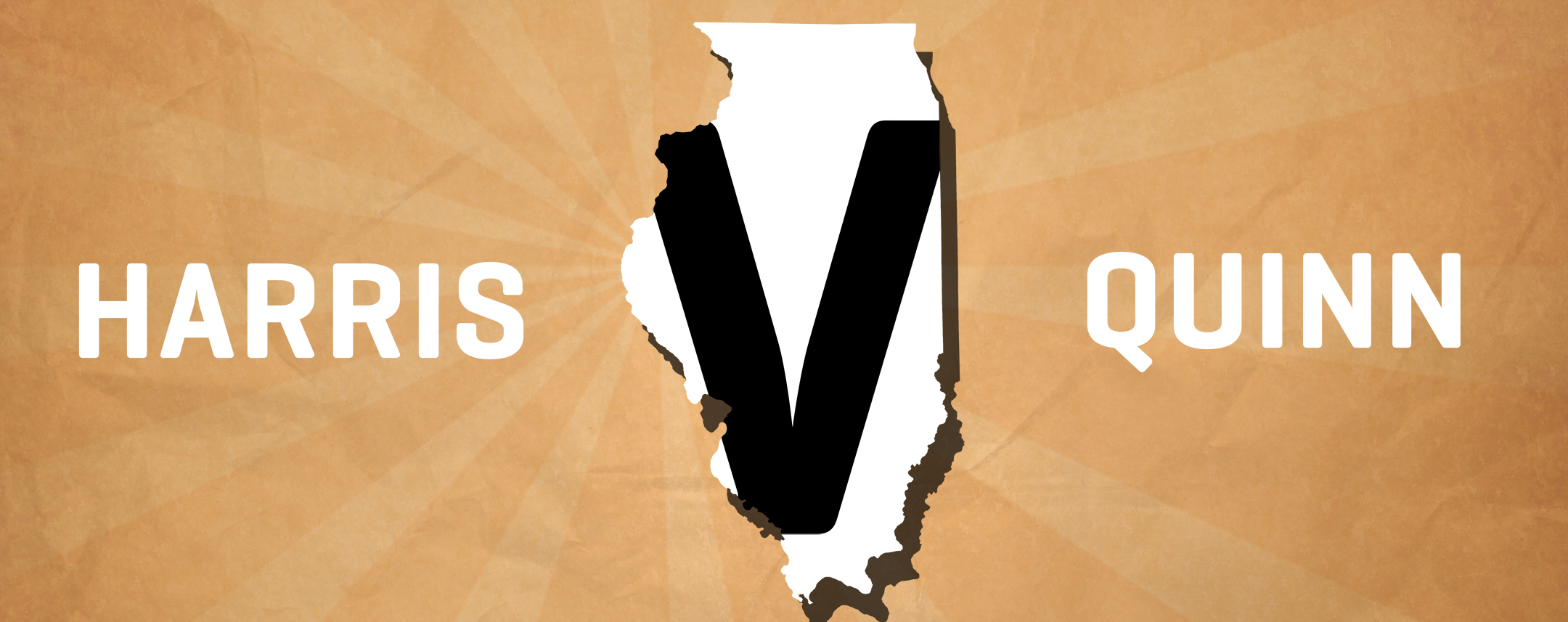Any time now, the U.S. Supreme Court is expected to announce its decision in Harris v. Quinn, the most important labor case in decades. The potential for the court to overrule Abood v. Detroit Board of Education, a cornerstone in the case law permitting public employees’ unions to collect fees from workers as a condition of employment, has labor unions sweating.
The case stems from a 2009 executive order issued by Illinois’ Gov. Pat Quinn, which designated in-home health care providers receiving Medicaid subsidies from the state as public employees for the purposes of collective bargaining, effectively forcing them into union membership. In response, a class-action lawsuit was filed contending that the obligatory union fees violate the home care providers’ First Amendment free association rights.
According to The Supreme Court of the United States Blog, the key issue in the case is whether states may “compel personal care providers to accept and financially support a private organization as their exclusive representative to petition the state for greater reimbursements from its Medicaid programs.” It is possible, though, that the court’s decision could also overturn a former landmark victory for labor unions in Abood v. Detroit Board of Education.
The 1977 court case affirmed the notion of the “agency shop” in which public employees are required to pay for union representation as a condition of employment. The Court’s decision required even non-union members to pay the union a “fair-share” fee for workplace representation, though the court ruled they could not be forced to support the unions’ explicitly political activity. Arguably, the very act of bargaining with the state for higher Medicaid payments is a political attempt to increase the size of the government, as Justice Anthony Kennedy noted during oral arguments. Today, Harris threatens the stability of the Abood decision and revisits the constitutionality of mandatory agency fees for public-sector unions.
Protecting labor peace should not come at the expense of fundamental liberties, and overturning Abood would be a positive step. But the court could also rule more narrowly and solely address whether home health care workers can actually be considered public employees for the purposes of collective bargaining.
Even if the Court leaves Abood intact, its ruling could still have significant consequences for unions like the Service Employees International Union (SEIU), which frequently represent home health care and child care workers. When Michigan state lawmakers reclassified home-care workers as public employees for purposes of unionization in 2005, the SEIU almost immediately gained 40,000 new members and began to collect 2.75 percent of their already-modest Medicaid compensation. In six years, the SEIU skimmed off $34 million in dues and fees. When state legislation dissolved the forced association in 2012, membership dropped 80 percent in a single year. The lesson from Michigan? If given the choice, most unionized home health care workers would not voluntarily choose to associate with a union.
A recent Freedom Daily interview gave further insight into a similar case in Minnesota. Child care provider Jennifer Parrish, head of a national coalition of union-free child care providers, discussed why unions are so determined to forcibly unionize independent workers receiving state subsides. “If [union lobbyists] are able to successfully get a governor to write an executive order, or they get the state legislature to reclassify private child care providers as employees of the state for purposes of bargaining, they can force us in to the ranks of labor unions, which brings in an additional millions of dollars in union dues for them,” Parish explained.
Parrish and other Minnesota child care providers challenged the governor’s executive order designating them as public employees, but their case is on hold pending the outcome of Harris v. Quinn. Parrish hopes the court rules in favor of workers, noting that, “The rights of those that don’t want to join and support labor unions are just as important as the rights for those that do want to join and support.”
Listen to the whole interview here.











